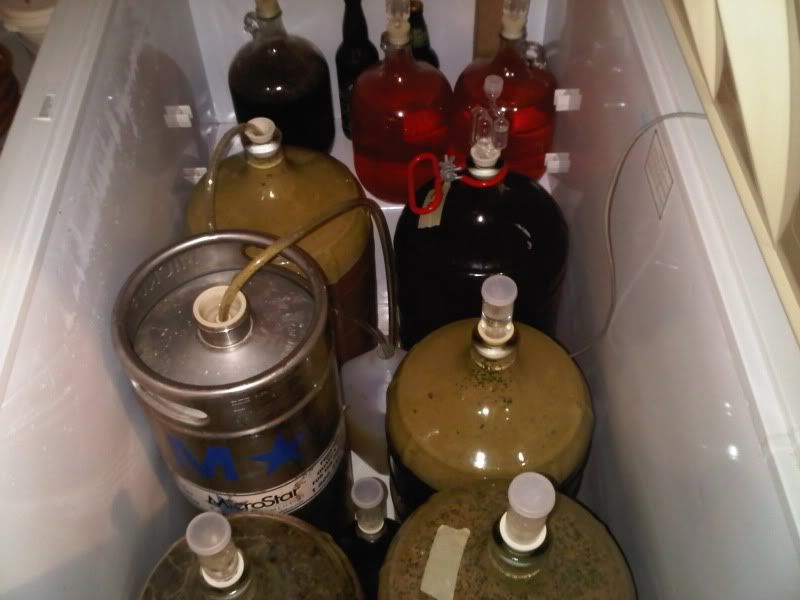I am also looking for a proven pomegranate wine recipe. Recently, I happened upon a large quantity of pomegranates. So far I have about 5gallons of must, and counting (if I don't give up on the deseeding, what a pain!) I have made a few batches of wine from grapes, so I'm familiar with that process. I'm not familiar with testing of non-grape must; what levels am I looking for in TA and pH?
I plan on adding sugar to bring the must to a SG of 1.09, then adding pectic enzyme, yeast nutrient and K-meta, wait 24 hours then pitch ES488 yeast (since I have some leftover from grape harvest.) I've heard poms are high in acidity so I may have to water down to a certain unknown level of TA. Any advice would be greatly appreciated!
I didn't find much on the interwebs regarding pomegranate wine. So I'm going with a lot of assumptions for this one. This is my first non-grape wine so I'm taking detailed notes, which I've shared below. Feel free to provide any suggestions or comments you might have.
Harvested on 11/1/2014 from Porterville, CA
Peeled and crushed by hand. Made a great effort to eliminate as much pith and membrane as possible.
~6 gallons must (22L), seeds and all
OG: 1.076
pH: 3.9
TA: 0.6% (not sure of the accuracy of this number, the color change indicator wasn't definitive.)
11/6/2014
Primary fermentation in 8 gallon bucket sanitized with OneStep
Added ~3/4 teaspoon KMeta(winy) dissolved in water at crush
Added 2tsp. citric acid and 2tsp. tartaric acid dissolved in water
Added ~1lb. raw sugar dissolved in water
11/7/2014
Added 2tbs. Pectic enzyme directly to must
11/8/2014
SG: 1.089
pH: 3.7
Added 1/2 teaspoon ES Energy directly to must
ES488 Yeast 10 Grams
Started yeast in 1/2 cup warm spring water for 10 minutes then added 1/2 cup must, left for 30 minutes. After vigorious fermenation was apperant, pitched starter into must and stirred briefly.
11/9/2014
Obvious signs of active fermentation are apparent.














































![Craft A Brew - Safale S-04 Dry Yeast - Fermentis - English Ale Dry Yeast - For English and American Ales and Hard Apple Ciders - Ingredients for Home Brewing - Beer Making Supplies - [1 Pack]](https://m.media-amazon.com/images/I/41fVGNh6JfL._SL500_.jpg)












